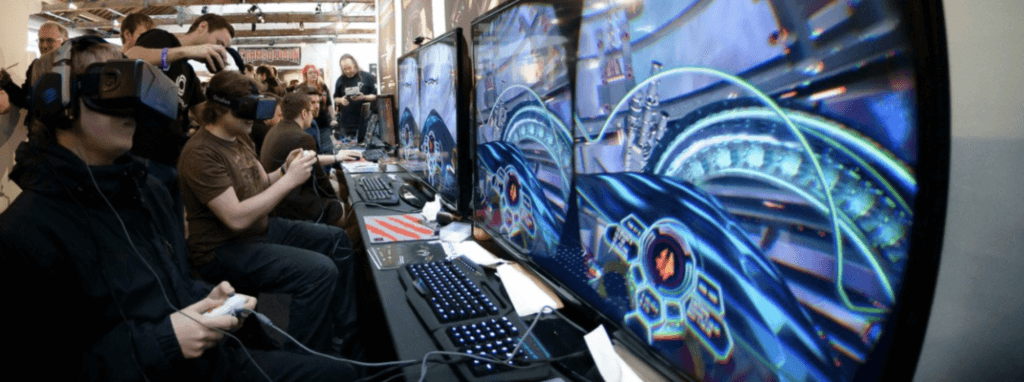Artificial intelligence is among the most exciting fields of technology these days. Autonomous cars, voice assistants, facial recognition: all of them and more are an increasing part of our lives. Famous people, from Elon Musk to the late Stephen Hawking, have chimed in concerning the risks associated with machines that literally have a mind of their own. Laws are being passed, often in a hurry, to regulate issues that weren’t even on anyone’s radar at the start of this decade.
The attention currently enjoyed by what used to be an esoteric academic field (when it wasn’t the centerpiece of a sci-fi movie) likely began with Apple’s release of Siri in 2011, but took a sharp uptick when AlphaGo defeated the world champion at Go, a task previously thought all but impossible.
Which is ironic, because there’s one industry where AI has been a thing for decades, and that’s gaming. It makes sense, too: from Wolfenstein to Civilization, many if not most games need to present the player with credible computer-controlled opponents that put up a good fight before losing graciously.
Of course, game AI is usually just smoke and mirrors, relying on simple tricks and insider knowledge. But exceptions are known to exist, and even games where the built-in AI is just smoke and mirrors sometimes also get the real deal – computer programs that can play the same way a human would. In turn, such research projects can inform more practical applications down the road.
But what if I told you there’s another kind of game AI, one that designs video games instead of playing them?
Angelina is being developed by Mike Cook, a British researcher who works tirelessly to bridge academia and more pedestrian walks of life. As I’m writing these lines, he just published an article debunking common misconceptions about artificial intelligence – a dire necessity in a world where sensational reporting blows fears and expectations alike out of proportion.
Doubly so as most people – even many programmers – don’t really understand how ordinary, dumb software works. And our entire lives depend on software by now.
Sure enough, Angelina isn’t going to be a new Sid Meier any time soon. Her creations, far from award material, belong in the category of trash games (what with the surreal juxtaposition of sprites crudely cut from images found online). But she’s not a parlor trick either!
Angelina is a real AI, for what it’s worth. She actually tries to connect concepts, extract new meanings and more importantly explain her process – even ask for feedback. And of course she can also play her own games, like any game designer does to see if they’re working out. She doesn’t do any of that very well yet, but then she doesn’t have a marketing department trying to oversell her abilities, either.
What makes her tick exactly is harder to explain; I confess not having looked at any of the scientific papers written about her over the years, and the program code isn’t public. Besides, my own interests lie with another side of Mike Cook’s studies and outreach efforts.
That said, some of what Angelina does brings to mind Dreamer of Electric Sheep: a completely unrelated project that draws from a semantic database. (That’s a kind of big dictionary made for the use of AIs — remember, most of them couldn’t make sense of just any text, like this article, the way we can.)
The results are just as dreamlike as the title implies, and the choice of illustrations is a constant reminder that the AI doesn’t really make sense of the concepts it’s working with; not in the same way people do, anyway.
Then again, they don’t have to. The goal of Angelina isn’t to one day attend the Game Developer’s Conference on her own and sign a million-dollar publishing contract with Electronic Arts.
Much like C.P.U. Bach a quarter of a century ago, her contribution to the world is to make us reflect on ourselves, to find the meaning and value of what we do. Because going through the motions is obviously easy if a computer program can do it.
To know why it’s worth doing takes a human being. And we have to know the “why” if we are to help ourselves and others.
Recently, Angelina’s creator taught her about cats, which sparked an obsession for a while.
If there’s one thing humans and AIs can agree upon, it’s that “cute fuzzy creatures are important”. And you know what? That’s awesome. There’s so much negativity in the world these days, every little thing like that is a breath of fresh air.
Follow TechTheLead on Google News to get the news first.























